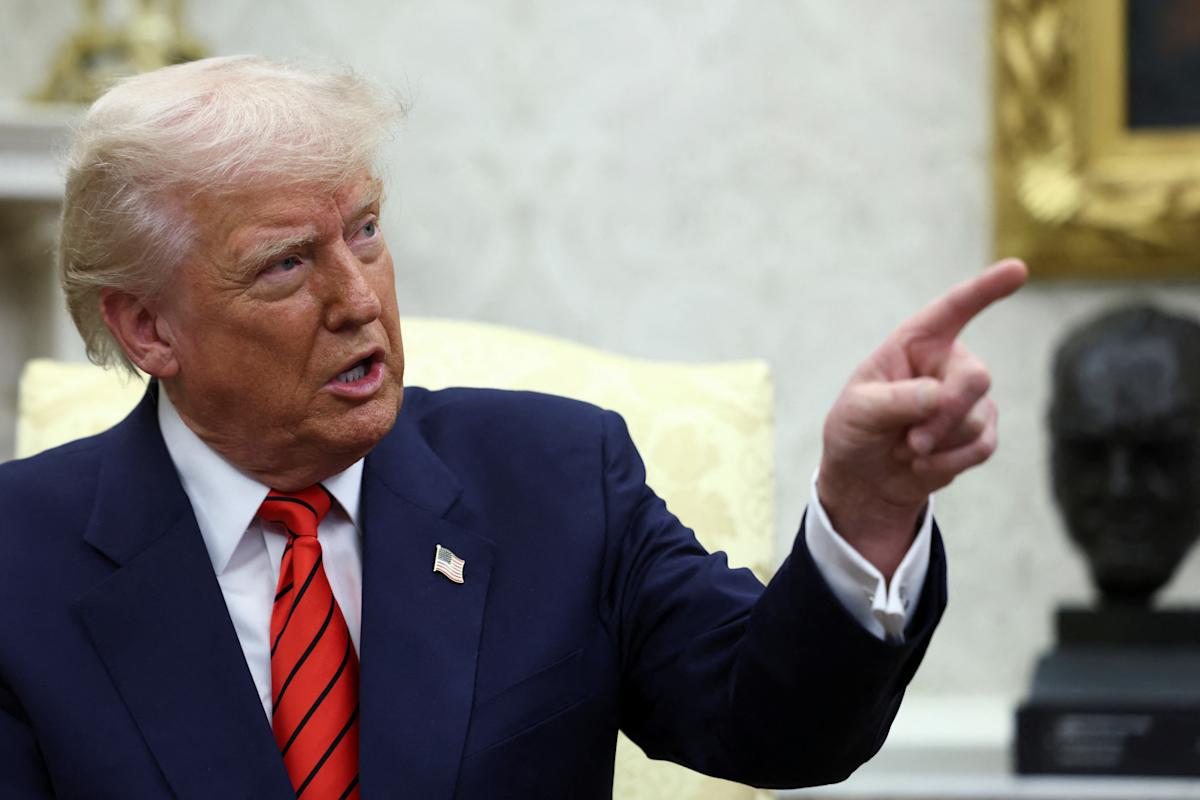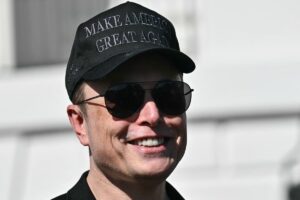Trump Stays Firm in Conflicts with Big Tech While Open to Compromises on AI

Trump’s Antitrust Strategy: A Focus on Big Tech
In the current political landscape, President Trump’s administration is actively pursuing antitrust actions against major technology companies, commonly referred to as Big Tech. While there is a notable softening of policies concerning artificial intelligence, the White House’s approach towards antitrust enforcement remains firm.
Ongoing Legal Battles Against Big Tech
The administration is continuing with two significant antitrust lawsuits that are already in trial against Google and is preparing for additional cases against major players like Meta, Amazon, and Apple. The Federal Trade Commission (FTC), led by Trump-appointed officials, has also expanded its investigation into Microsoft and its partnership with OpenAI, all while scrutinizing Microsoft’s acquisition of gaming giant Activision Blizzard.
Andrew Ferguson, the FTC chair, stated that the agency would not shy away from challenging mergers. He emphasized that the FTC’s strategy would focus on protecting American economic interests but would not interfere indiscriminately. This approach marks a departure from previous eras of relatively relaxed antitrust enforcement.
A Lighter Touch on AI Regulation
While Trump’s administration remains aggressive towards antitrust issues, it appears to be more lenient regarding artificial intelligence. In a court filing from March 7, Trump’s Justice Department argued that Google should retain its AI investments, even if other parts of the company face structural changes.
This shift suggests a deliberate effort by the administration to prioritize AI development. Experts, such as JD Harriman, an attorney with a significant background in tech law, have noted that this reflects an evolving sentiment towards AI regulation. David Olson, a law professor, noted that the decision not to impose restrictions on Google’s AI ambitions indicates a shift in policy direction compared to the previous administration.
Implications for Big Tech
The renewed antitrust efforts demonstrate a tension in the political landscape regarding how to handle large technology corporations. While the Biden administration focused on addressing issues such as censorship and economic concentration, Trump seems to be framing his approach in a way that resonates with populist sentiments within the Republican Party.
According to Peter Salib, a law professor, the motivations behind targeting companies like Meta are partly driven by concerns over the suppression of conservative viewpoints online. Salib explained that the current administration views the tech giants differently than previous administrations. He remarked that while the Biden administration viewed large firms as problematic for various reasons, Trump’s administration approaches the issue from a distinct angle.
Upcoming Legal Challenges
Looking ahead, the FTC is gearing up to confront Meta in a significant antitrust lawsuit involving the company’s earlier acquisitions of Instagram and WhatsApp. The U.S. government contends that these acquisitions were used to eliminate competition in the personal social networking space. This litigation is set to move forward in April, with the government seeking to reverse these mergers.
In parallel, the Justice Department is also asserting claims against Google concerning its monopolistic practices, as illustrated by a lawsuit that may require the company to divest from portions of its business, like the Chrome browser.
Regulatory Dynamics Influencing AI Development
Support for lenient AI regulations is emerging not only from the executive branch but also in Congress. A bipartisan task force has indicated a cautious "wait and see" attitude towards regulating AI, influenced by competitive pressures, especially from China.
The nuanced stance on AI has allowed the Trump administration to manage its antitrust agendas without overregulating the AI sector. Moreover, Trump has rescinded executive orders from the Biden administration that required regulatory compliance from AI developers regarding safety and testing. Instead, he has presented a more deregulated approach, aiming to maintain U.S. leadership in AI technology.
In a recent address at the Paris AI Summit, Vice President JD Vance expressed a preference for embracing AI’s potential rather than focusing solely on safety concerns, thus echoing the administration’s overall strategy.
The Path Forward for Big Tech and AI
As Trump’s administration continues to navigate the complexities of antitrust enforcement alongside a softer touch on artificial intelligence regulation, the landscape for Big Tech remains fraught with legal challenges and evolving expectations. These ongoing developments will undoubtedly shape the future of competition policy in the technology sector as the U.S. seeks to balance innovation and market regulation.






